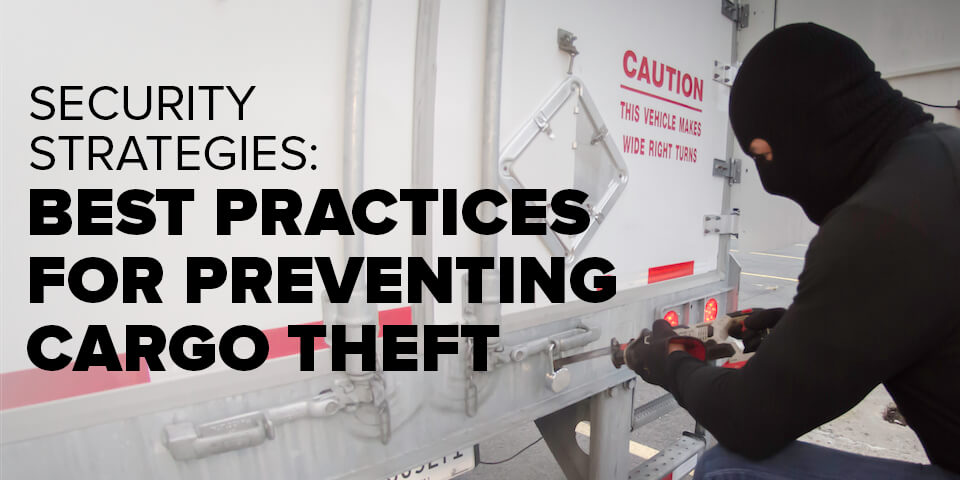In The News

Security Strategies: Best Practices for Preventing Cargo Theft
When expedite owner-operators Bob and Linda Caffee arrived at a customer’s site one evening to deliver a load in Charlotte, N.C., something didn’t feel right.
“Their gates were open, and when we drove in, it looked odd,” Linda recalls. “Something just wasn’t right, but we couldn’t put our finger on what it was. So, we turned around and went probably about 20 miles to a truck stop.”
And it’s a good thing they did. In the morning, when the Caffees went back to the site to deliver, they found out the customer had been robbed the night before.
“We had planned to spend the night at their facility and then unload in the morning,” says Linda. “But when you feel uncomfortable, it just goes to show that you need to follow that intuition. Leave. Or get with other people.”
This story brings home the point that you can never be too careful with your own security and protecting the cargo that customers have entrusted you with. So, here are three safety and security best practices to keep in mind when you’re out on the road.
#1. Plan ahead before picking up your next load.
Linda Caffee recommends making sure that your truck has enough fuel to travel a minimum of 150 to 200 miles after you’ve picked up a load.
“You want to be able to drive as far as you can before you need to make a stop, which will help deter somebody [from following you]. That’s because you’re forcing them to drive that far to get your load, which most [criminals] aren’t going to do. They're going to target the easy [victim] that picks up and heads to the next truck stop, goes in and eats or leaves their truck unattended,” says Caffee.
#2. Park with security in mind.
When you do need to stop, park in a well-lit area.
Also, you want to make it difficult for anyone to access your rear cargo doors.
How?
One tip is to back up near another truck or fence so that a thief can't open the rear doors even if they could break the lock.
But at a minimum, be diligent about keeping the truck locked.
“We’re extremely religious about making sure everything is locked,” says Jason Hutchens, an expedite owner-operator with his wife Heather. “When we park for the night, we walk around the truck and make sure all of our toolboxes, all our little cabinets, and the two locks on the back door are all locked and secured. Even if we're empty, we don't want anybody sneaking in the back and catching a ride somewhere. We keep everything locked at all times.”
#3. Keep your loads to yourself.
If you follow any of the expediting groups on Facebook, you’ll notice several expediters talking about where they’ve picked up a load and where they’re headed. Perhaps you’ve done that, too.
But Linda Caffee advises against it.
“Don't tell anybody what you're hauling and where you’re headed—whether on social media, waiting to get fuel, at the restaurant, or anywhere,” says Caffee. “There are people always listening and some folks can figure things out pretty quickly about the type of load you might hauling and where you’re taking it based on what you post on social media.”
What’s an example?
“Okay, suppose you post on social media that you picked up a load in Texas—which is pretty broad—but then you say you're headed to a specific city like Norfolk, Va. Now you have a situation where criminals try to put two and two together, assuming you might be hauling night vision equipment or anything crazy like that that terrorists would want. They’re thinking, ‘Hey, why not check them out and see what they've really got in that truck?’”
Not only can criminals use your social media feed to try to guess your cargo, but they might also be able to figure out what route you’re taking and your timing along the way, says Caffee. “From social media, they know what your truck looks like. If you're heading in a certain direction, they know what highway you're likely going to be on. And they know when you left based on the time of your post. All of sudden, you’ve left yourself vulnerable to getting robbed and didn’t know it.”
